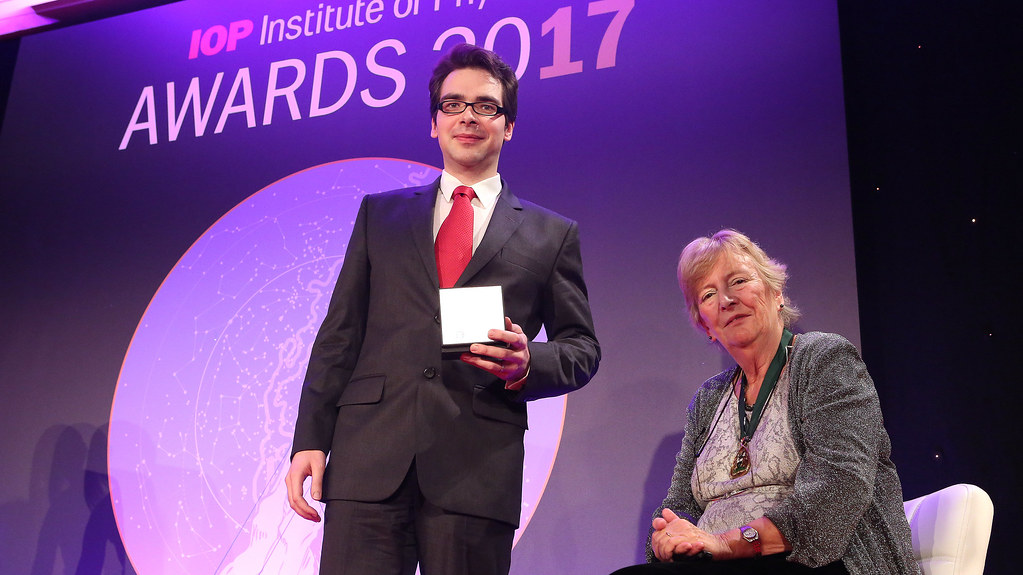Dr Mucha-Kruczyński received the James Maxwell Early Career Award, given to scientists making exceptional early career contributions to theoretical physics, at the Institute of Physics Awards 2017.
The award recognises his “outstanding contributions to the understanding of graphene, in particular groundbreaking studies that have addressed its optical properties, lattice deformations, electronic structure, and electron transport”.
Graphene is the world’s thinnest material; one million times thinner than a human hair, is 200 times stronger than steel and is the world’s most conductive material. Its remarkable properties mean is has exciting potential applications in areas such as electronics, sensors and membranes.
Dr Mucha-Kruczyński said: “I was exhilarated on receiving the news about the award. It feels very rewarding but is also a big motivation for me to continue my research. It also is a little intimidating, as the list of past recipients of this medal contains some very recognizable names in theoretical physics, including some Nobel Prize winners.
“Graphene, a single layer of carbon in a honeycomb lattice, is the first of a growing group of atomically thin materials called two-dimensional atomic crystals. After learning how to make them, scientists are now stacking these atomic layers together as ‘sandwiches’ with the aim of creating new artificial structures with unique properties. My future research will go beyond graphene to focus on modelling the properties of new two-dimensional atomic crystals, as well as their stacks, to try predict new physical phenomena and help guide experimentalists through the many potential combinations to those that may be particularly useful for applications.
“I would like to thank all my collaborators, whose invaluable contributions to my work are also reflected in this award. I would also like to thank Professor Carole Mundell and Dr Daniel Wolverson for nominating me for this award.”
Professor Jonathan Knight, University of Bath Pro-Vice-Chancellor (Research), said: “I’m delighted that the Institute of Physics has decided to recognise Marcin’s work in this way. His contributions to the theory of bilayer graphene are widely recognised as being important, and have been influential in the development of the field. Marcin is an outstanding example of the quality of researcher that has been attracted by our Prize Fellowship scheme, and his developing research group is a real asset for our research portfolio in Physics.
“In being awarded the Maxwell Medal, Marcin joins a long list of illustrious physicists who have been past awardees, including his colleague in the Department of Physics Professor Dmitry Skryabin, who was awarded the Medal in 2009.”
IOP president Professor Roy Sambles said: “These awards are a celebration and a recognition of excellent physics, by physicists - by which our community honours those who produce the very best work.
“It is brilliant to see the continued creativity and cutting edge endeavours across all areas of physics throughout the UK, Ireland and internationally. The quality of the work and those undertaking it indicates that we have a very bright future ahead of us.
“My warmest congratulations go out to all the winners.”

